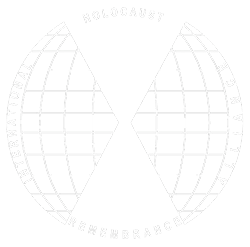Address: Ul. Dajwor 18
31-052 Krakow
Poland
Phone: +48 12 421 68 42
Email: This email address is being protected from spambots. You need JavaScript enabled to view it.
Website: https://galiciajewishmuseum.org/en/
Facebook: https://www.facebook.com/zydowskiemuzeumgalicja
Director/Person-in-Charge: Jacek Stawiski, Director
Principal Staff Members:
Tomasz Strug, Deputy Director, Chief Curator
Ada Kopec-Pawlikowska, External Relations and Fundraising Manager
Ishbel Szatrawska, Graphic Designer and Website Manager
Weronika Bilas,Visitor Services Manager
Marcin Doroz, Manager of Operations
Jadwiga Chalota, Bookshop Manager
Anna Wencel, Education Manager
Year Established: 2004
Staff: Salaried - 18; Volunteer - 6
Type of Organization or Mission: The Galicia Jewish Museum in Krakow exists to celebrate the Jewish culture of Galica and to commemorate those killed in the Holocaust, presenting Jewish history from a new perspective.
Services: Guided museum tours; interactive guided museum tours; Educational workshops and lectures on Jewish culture and tradition or Holocaust related topics; Meetings with Holocaust and concentration camp survivors or Righteous Among the Nations award recipients; Arts and crafts workshops; International youth exchanges; Seminars and training programs for teachers and tour guides; Book launches; Film screenings; Jewish dance workshops; Children and family programs; Guided walking tours of Jewish Krakow and Old Town; Private and group visits to the Auschwitz-Birkenau State Museum; Jewish bookstore; Children and family programs; Café; Catering
Permanent Exhibition: At the heart of the Museum is the permanent exhibition, Traces of Memory: A Contemporary Look at the Jewish Past in Poland. The exhibition pieces together a picture of the relics and culture of Jewish life in Polish Galicia that can still be seen today, interpreting these traces in a manner that is informative, accessible, and thought-provoking. The exhibition offers a lament of the destroyed Jewish civilization that once flourished in this country, remembers the location where annihilation took place, and gives credit to commemorative efforts that have occurred since the Holocaust. As the exhibition document traces Jewish presence in dozens of places, it allows us to localize the story, relaying to visitors a narrative not of strangers but rather their former neighbors.


